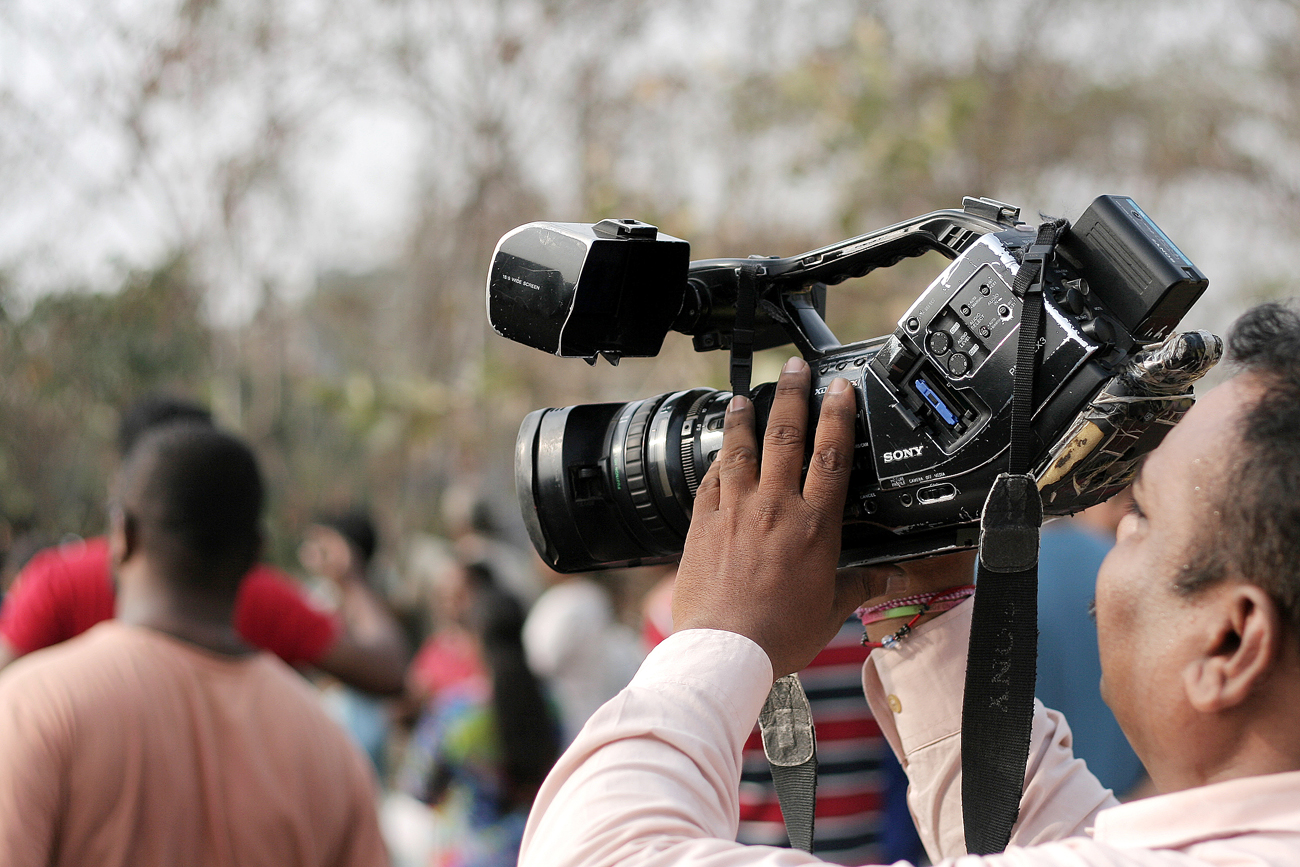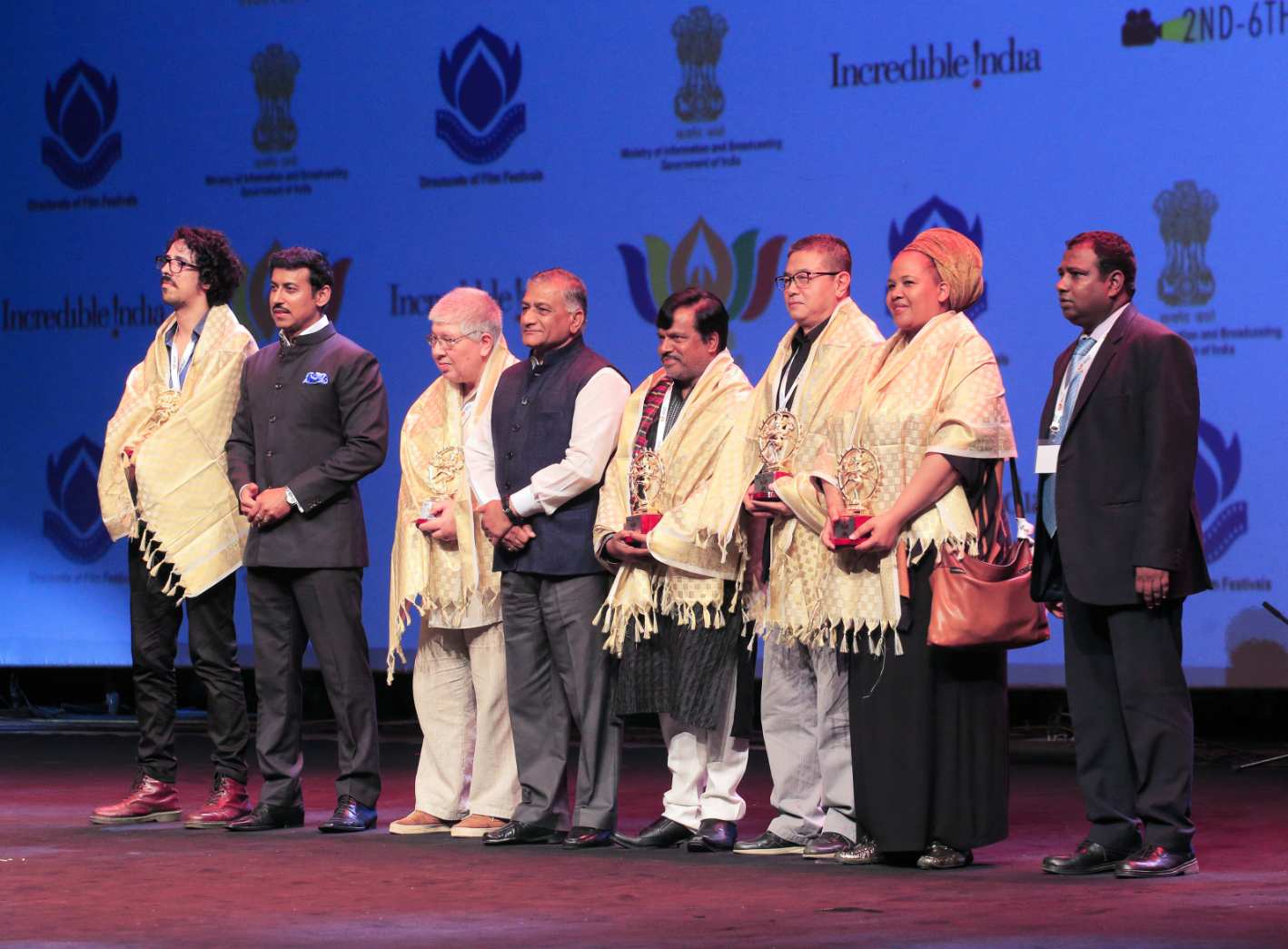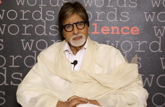Indian filmmakers begin to discover Russia

Despite many challenges Russia is currently more cost effective than Eastern European countries like Bulgaria, Romania, Poland or Hungary.
Shutterstock / Legion-MediaIt has been a while since sights of Russia appeared on Indian TV screens. Although some of Bollywood’s recent movies like ‘Lucky: No Time for Love’ (2005) featuring Salman Khan, Sneha Ullal and Mithun Chakraborty, and ‘Players’ (2012) featuring Abhishek Bachchan, Bipasha Basu, Bobby Deol and Sonam Kapoor were partly shot in Russia, the country is not high on the list of Indian producers’ favorite shooting destinations.
A new TV commercial featuring the Yamaha Fascino scooter, recently been aired on TV screens in India, was shot in St Petersburg. According to the creative team involved in making the commercial, the brief was to choose a location which had a mixture of Gothic and modern structures.
“We had shortlisted Hungry, Romania, Poland and Russia as possible locations. Finally, we zeroed in on St Petersburg for the following reasons: it is a beautiful city that had all the locations we were looking for. Above all, it was not over exploited by filmmakers, unlike the other shortlisted locations,” Anand Kumar, Producer & Managing Partner, Full Moon Productions, told RIR.
Other factors which contributed to the company’s decision to shoot in Russia were ability to get visas within a day through an Express Visa service option, the competitive cost of shooting, and availability of reliable local partners.
Overcoming the challenges
Fyodor Druzin, Producer and Managing director of Veles Media, a St. Petersburg-based film and media production agency that cooperated with Full Moon Production in this project, said it was the company’s first experience of working as a production services company for an Indian production.
“It has ultimately been an enlightening experience for us, as we now understand the specifics of working for a more fast paced industry that is the ad industry of India,” Druzin said.
Rishiraaj Shukla, Executive Director of Cine Mechanics, a production service agency representing Veles Media for the Indian Subcontinent, explains that in such projects productions agencies from both countries have to overcome certain challenges.
On the one hand, Indian producers traditionally perceive Russia as a difficult market that is not very production friendly, and difficult to deal with legally and financially. On the other hand, foreign production service companies, including the ones in Russia, take time to adjust to the way Indian industry works.
“The style of working of the Indian production industry is very different than that of any foreign production center. That completely takes foreign partners by surprise. They prefer more of Hollywood structure of working where everything is on paper, everything is very well planned,” Shukla said.
For Full Moon Production, this project was the first experience with Russia as a shooing destination. Kumar said, though the production went smoothly despite the weather not being very friendly, and while people in Russia were hardworking and supportive, there are some serious challenges, which should be considered if Russia wants to emerge as a shooting destination.
Lack of direct flights to St. Petersburg from anywhere in India is one of such issues. Troubles with immigration is another issue.
“We felt humiliated when we were asked to step out from the queue and accompany the local police for a thorough check, the moment the immigration officers saw our passports and discovered we are Indians. It uselessly delayed our immigration clearance by at least two hours,” he revealed, asking why such treatment is given to Indians if Russia and India have a long history of special friendship?
The biggest issue the Full Moon Production team faced was dealing with Russia’s customs. Since the company had had to shoot scooters, these had to be sent from India to St. Petersburg.
“After getting all the paperwork done in accordance with standard international procedures, the scooters were sent to Russia, but we had nightmares in getting the scooters cleared from the customs,” Kumar said. “Their demands were absolutely unreasonable, they completely ignored the fact that those papers were sent in advance to them to make sure we have no problems in getting the custom clearance done”.
The company had to involve the Indian Embassy in Russia, the Federation of Indian Chambers of Commerce & Industries (FICCI) and the Russian Chambers of Commerce to resolve the matter. The scooters were eventually released, although the company claims it had lost around three million rupees (US$ 44,971).
“Before the trip we were pre- warned that Russian customs creates many unnecessary hassles, but we ignored it. One has to understand that a shooting crew has to carry a lot of stuff to the shooting destination – if they continue to face such hassles they will avoid shooting at such locations,” Anand concluded.
Filming for tourism
Traditionally, the UK and the US are the most preferred destination for Indian productions, Shukla points out, as the stars and the crew are very comfortable travelling there, and these countries also have an efficient system of tax rebates for the production industry. However, both destinations have always been expensive. Eastern Europe has recently emerged as a more cost-effective alternative for Indian production companies, and several Bollywood movies have been recently shot in Poland, Budapest and the Czech Republic.
Despite many challenges Russia is currently more cost effective than Eastern European countries like Bulgaria, Romania, Poland or Hungary.
“At the moment Russia is undergoing a sort of restructuring, and so far as our industry is concerned we have only gained from the cheaper ruble and restrictions on imports of certain products,” Druzin of Veles Media said. “Due to the cheaper ruble, our already cheap qualified film production labour has become even more welcoming to foreign shoots”.
He adds that Russia and Central Asian countries can offer not only world-class services but unique natural and historical locations, where we are able to provide looks of any temporal zone from desert to rainforest as well as urban environments from the middle ages to futuristic urbanscapes. Most importantly, these locations have not been overused.
Shukla said locations in Russia are great, although in certain cases the logistics might be difficult and costly. The infrastructure and production set up is also available, but it is not as well defined as in some other countries to streamline cost effectively. Language, too, remains as barrier, although this issue is similar for other Eastern European countries too.
He believes the Russian authorities should work on easing business processes, financial transactions and establishing a 3-days window to get permission to shoot in main locations, which many other countries already have. Another way of promoting cooperation between the two countries is streaming marketing efforts into the businesses that can increase tourism.
“For example, a big Bollywood film, co-produced with Russia and released in India will increase tourist flow ten times,” Shukla argues, adding that Switzerland tourism developed in India because many of Yash Chopra’s films were shot on location in Switzerland.
“For a couple of decades, whoever was getting married in India wanted to spend their Honeymoon in Switzerland,” Shukla said.
Germany and Spain have witnessed over 50 per cent increase in tourism flows after several Bollywood hits were shot in Berlin, Barcelona and Ibiza, and the same could happen in case of Russia. Cooperation in the film and production industry between Russia and India could not only influence the tourist exchange significantly, but could also improve overall business cooperation between countries.
All rights reserved by Rossiyskaya Gazeta.
Subscribe
to our newsletter!
Get the week's best stories straight to your inbox


